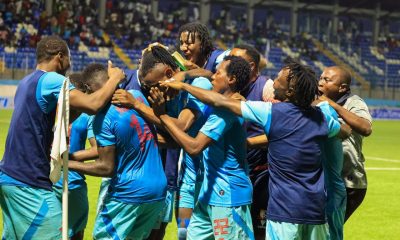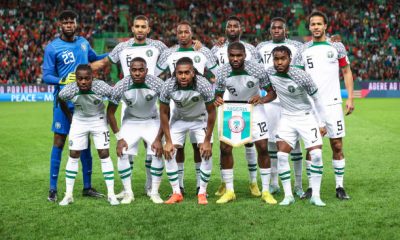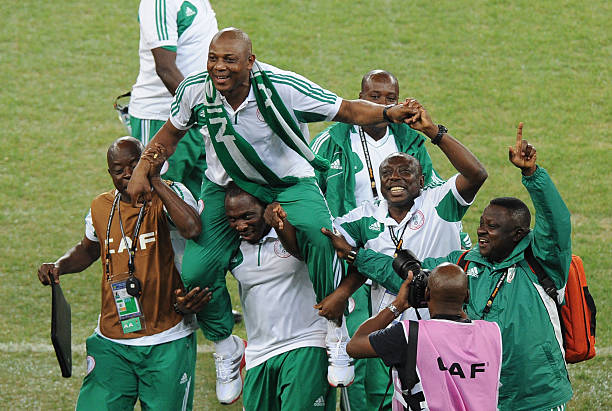
The Africa Cup of Nations (AFCON) is the most prestigious football competition in Africa, and Nigeria’s Super Eagles have cemented their legacy in the tournament’s history. With three AFCON titles (1980, 1994, and 2013), Nigeria has consistently been one of the continent’s football powerhouses.
This article takes a historical look at Nigeria’s AFCON triumphs, analyzing each victory, the key players, and how these moments shaped Nigerian football.
1st AFCON Title – Nigeria 1980: The Birth of the Super Eagles
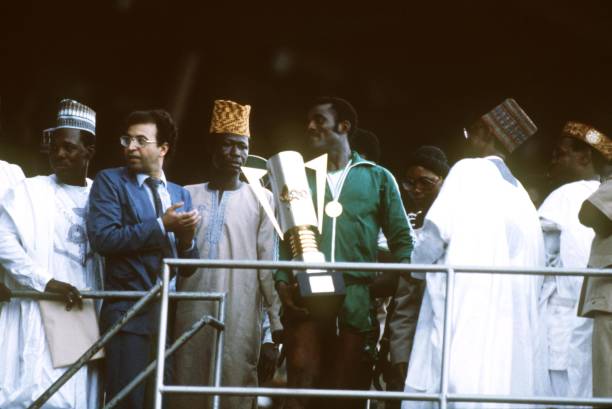
🔹 Host Nation: Nigeria
🔹 Final Match: Nigeria 3-0 Algeria
🔹 Key Players: Segun Odegbami, Christian Chukwu, Muda Lawal
Road to Glory
The 1980 AFCON was special because Nigeria hosted the tournament for the first time. The Super Eagles (then known as the Green Eagles) delivered an unforgettable performance, giving the home fans a first-ever AFCON title.
Final Match Highlights
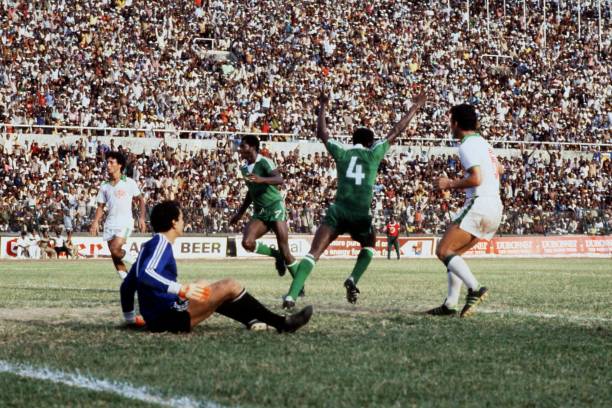
✅ Nigeria dominated the final, defeating Algeria 3-0 at the National Stadium in Lagos.
✅ Segun Odegbami scored a brace, while Muda Lawal added the third goal to seal victory.
✅ Captain Christian Chukwu led from the front, guiding Nigeria to continental glory.
🔥 Why It Was Special
- Nigeria’s first-ever AFCON title marked the nation’s emergence as a major force in African football.
- A record-breaking crowd witnessed the historic moment in Lagos.
- This victory inspired future generations of Nigerian footballers.
2nd AFCON Title – Tunisia 1994: The Golden Generation
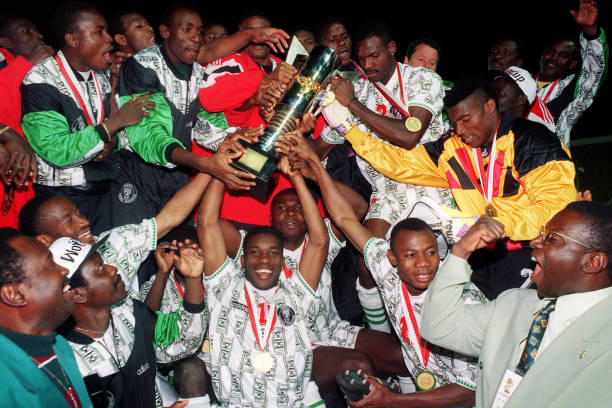
🔹 Host Nation: Tunisia
🔹 Final Match: Nigeria 2-1 Zambia
🔹 Key Players: Rashidi Yekini, Emmanuel Amunike, Sunday Oliseh, Jay-Jay Okocha, Daniel Amokachi
Road to Glory
By 1994, Nigeria had developed one of the strongest squads in African football history. This “Golden Generation” not only won AFCON but also qualified for their first-ever FIFA World Cup later that year.
Final Match Highlights
✅ Zambia, playing in honor of their teammates lost in a tragic air crash the previous year, took the lead.
✅ Emmanuel Amunike scored twice, completing an incredible comeback for Nigeria.
✅ Nigeria’s midfield dominance, led by Sunday Oliseh and Jay-Jay Okocha, controlled the game.
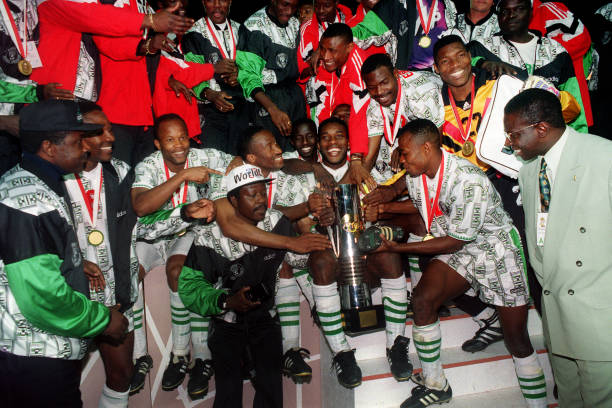
🔥 Why It Was Special
- Nigeria’s squad was packed with future football legends, many of whom became global stars.
- Rashidi Yekini’s passionate goal celebration against Bulgaria at the 1994 World Cup became one of the most iconic images in football.
- The Super Eagles were ranked 5th in FIFA World Rankings in 1994—Africa’s highest-ever ranking.
3rd AFCON Title – South Africa 2013: The Underdogs Triumph
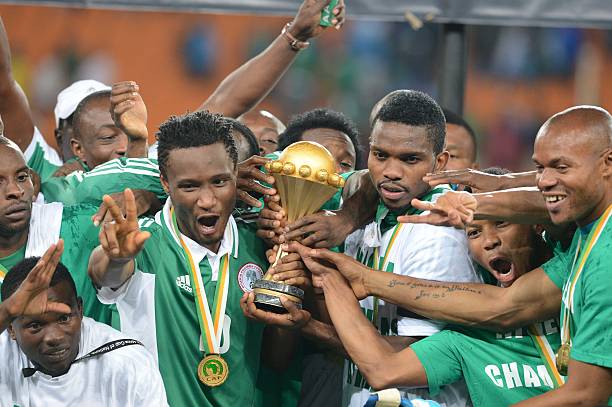
🔹 Host Nation: South Africa
🔹 Final Match: Nigeria 1-0 Burkina Faso
🔹 Key Players: Sunday Mba, Victor Moses, John Obi Mikel, Vincent Enyeama
Road to Glory
Nigeria’s 2013 AFCON campaign was different because they were not considered favorites. However, under coach Stephen Keshi, a squad mixed with young talents and experienced players shocked the continent.
Final Match Highlights
✅ Nigeria controlled the final against Burkina Faso, a surprise finalist.
✅ Sunday Mba’s stunning volley was the only goal of the game, sealing Nigeria’s third AFCON title.
✅ Victor Moses and Mikel Obi led Nigeria’s attack, while goalkeeper Vincent Enyeama kept a clean sheet.
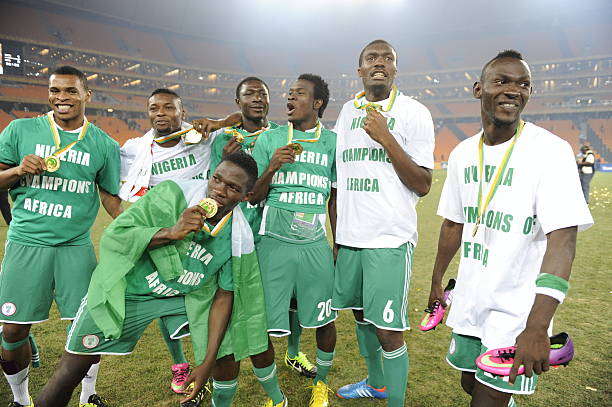
🔥 Why It Was Special
- Stephen Keshi became only the second person to win AFCON as both a player (1994) and a coach (2013).
- Nigeria’s victory secured a place in the FIFA Confederations Cup.
- The win revived Nigerian football after missing out on AFCON 2012.
Nigeria’s AFCON Legacy & Impact on African Football
🏆 3 AFCON Titles (1980, 1994, 2013)
🥈 4-time Runners-up (1984, 1988, 1990, 2000)
🥉 4-time Third Place Finishers (1992, 2002, 2004, 2006)
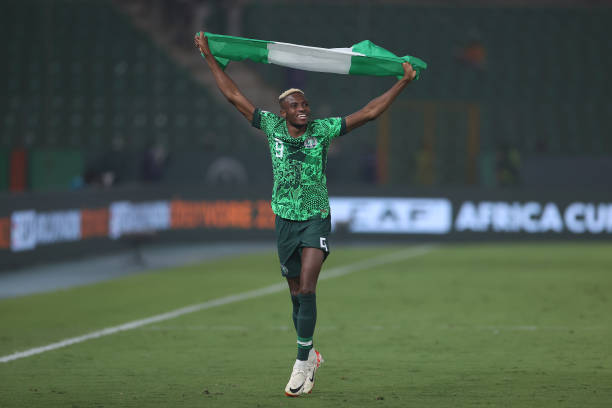
Why Nigeria Is One of Africa’s Greatest Football Nations
✅ Consistent Performances: Nigeria has reached the AFCON final or semi-final 15 times.
✅ Global Stars: Nigerian football has produced legends like Kanu Nwankwo, Jay-Jay Okocha, and Rashidi Yekini.
✅ FIFA World Cup Representation: Nigeria has qualified for six World Cups, showing their consistency at the highest level.
Can Nigeria Win AFCON Again?
SUGGESTED FOR YOU
England or Nigeria? Arsenal’s Ethan Nwaneri Faces Key International Decision
With stars like Victor Osimhen, Samuel Chukwueze, and Wilfred Ndidi, Nigeria’s future looks bright. However, challenges like coaching stability and squad depth need to be addressed.
💬 Do you think Nigeria will win their fourth AFCON soon? Drop your thoughts in the comments! 🚀


